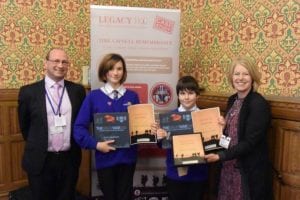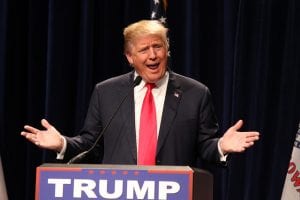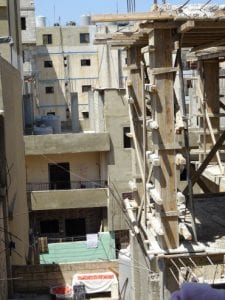Legacy 110 awards ceremony blog
By utnvlru, on 11 December 2016
The Legacy 110 programme is an initiative built around the UCL Institute of Education (IOE)’s First World War Centenary Battlefields Tour Programme, which aims to encourage pupils and schools that take part in the tours to share what they have learned with others in their schools and communities in order to help maintain the legacy of the Great War.

This comprehensive education programme, which allows every secondary school in England to send two pupils and one teacher to the Ypres and the Somme to witness first-hand battlefields sites, is now half way through its scheduled five years. The second annual awards ceremony, recognising some of the most outstanding projects that have taken place as part of Legacy 110, was held at the House of Lords on Thursday 8th December – featuring presentations from each of the winning schools.
The diverse and impressive range of projects that received awards showcased how the programme is about much more than simply learning about WW1 or history, and that it actually cuts across subject areas – from English, drama, music through to art, and helps encourage children to work with different groups of people.
As the programme leader, Jerome Freeman from the IOE said in his address: “this is much more than just a battlefield tour – it is a comprehensive educational programme. It goes well beyond the 1 Plus 2 on the tour – it impacts hundreds of students in every school”. He added that the Legacy projects encourage children to work with many different groups – “their communities, other schools, different generations” and encourages them to “build connections across these”.
 Close
Close



 This interdisciplinary and participatory research in nine communities in the Middle East will address the need for evidence that tells us how local communities respond to people displaced by conflict.
This interdisciplinary and participatory research in nine communities in the Middle East will address the need for evidence that tells us how local communities respond to people displaced by conflict.